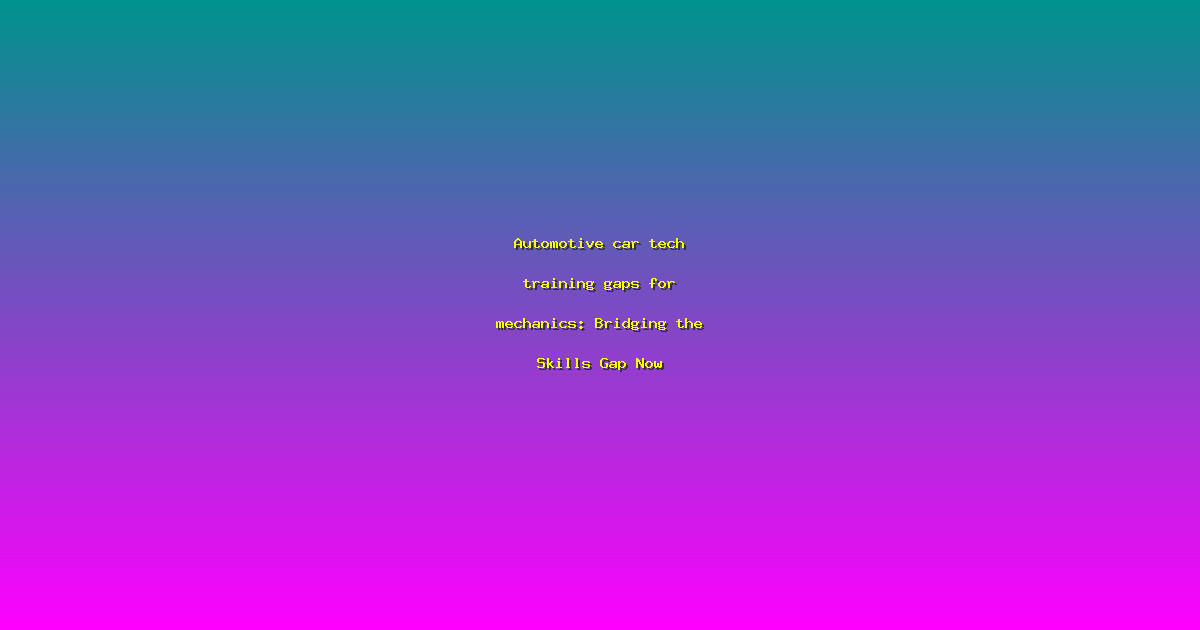Automotive Car Tech Training Gaps for Mechanics: Bridging the Skills Gap Now
As technology rapidly evolves, the automotive industry faces a significant challenge: bridging the skills gap for mechanics in car tech training. This article explores the current landscape, challenges, and strategies to equip mechanics with the necessary skills to meet the demands of the 21st-century automotive market.
The Current Landscape of Automotive Technology
The modern automobile is no longer just a mechanical marvel. Today’s vehicles are complex systems integrating sophisticated electronics, autonomous driving features, and advanced safety systems. These advancements have transformed the role of a mechanic from one focused purely on mechanical repair to one that requires a deep understanding of technology.
Identifying the Gaps in Training
The skills gap in automotive technology training primarily stems from the rapid evolution of vehicle technology outpacing the existing training programs. Many traditional mechanics, trained in the basics of mechanical repair, find themselves ill-equipped to handle the diagnostic and repair needs of vehicles with advanced technology.
Strategies to Bridge the Skills Gap
Continuous Education Programs
Manufacturers and educational institutions are increasingly offering courses tailored to the needs of the modern automotive industry. These programs focus on the latest technologies and provide hands-on experience with the tools and systems used in high-tech vehicles.
Industry Partnerships
Collaborative efforts between automotive manufacturers and educational institutions are vital. Partnerships can ensure that training programs stay relevant and up-to-date with the latest technological advancements in the automotive sector.
Online Learning and Resources
Online platforms are becoming an essential part of closing the skills gap. They offer flexible learning opportunities and allow mechanics to access a wealth of information from anywhere at any time.
FAQs
Are traditional mechanic skills still relevant?
Yes, traditional skills remain foundational. However, mechanics now need to complement these skills with technology knowledge to stay relevant and effective in the industry.
How can mechanics identify the latest training programs?
Mechanics can look into associations, seminars, and online platforms dedicated to automotive technology. These sources provide up-to-date information on new technologies and training programs.
What are the key technologies mechanics need to learn?
Key areas include knowledge of electric and hybrid systems, advanced diagnostics, and understanding of autonomous vehicle technologies and safety features.
Can mechanics get financial assistance for further training?
Many manufacturers and government programs offer financial support to mechanics for further education and skills development. It's important to research and apply for these opportunities.
How does continuous learning benefit a mechanic's career?
Continuous learning can enhance job security, open up new career opportunities, and increase earning potential by equipping mechanics with the latest skills and knowledge.

